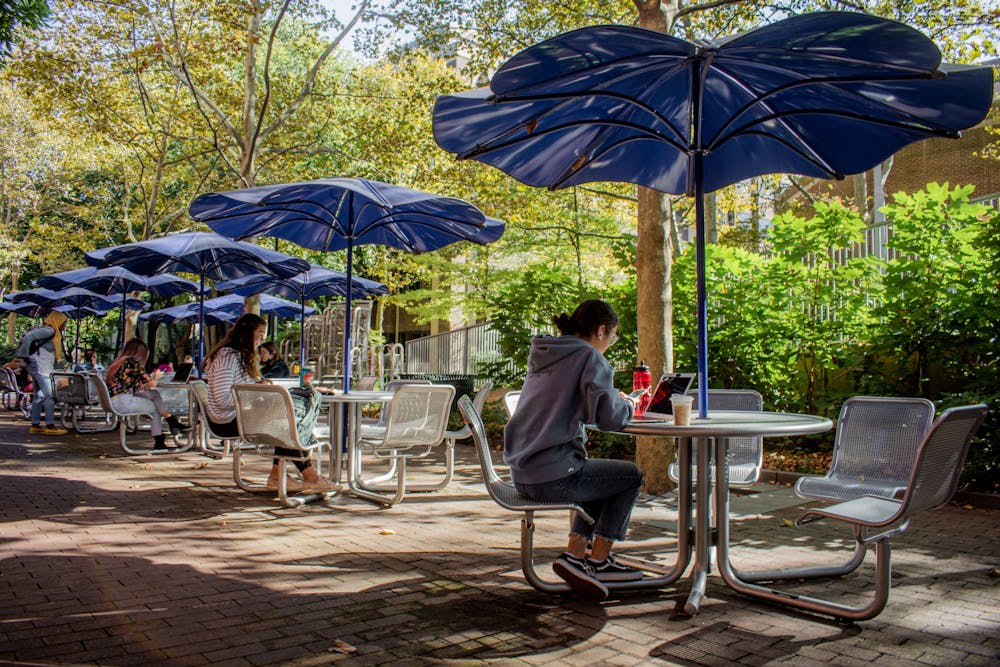Nearly four years ago, I entered Penn as a first year in the Huntsman Program in International Studies and Business excited to learn about theories and practices that could develop my understanding of environmental justice and the roles business, law, and communities play in the pursuit of equity. At Wharton, I have had the opportunity to learn about energy markets and renewable energy policy, speak with CEOs of sustainable European companies, and understand community-run, non-profit landscapes in Kenya and South Africa. This is not the typical Wharton undergraduate experience.
Many students enter and exit Huntsman Hall without ever examining the relationships between companies and marginalized people, or without ever challenging themselves to reframe their expectations for what a business should accomplish for society and the environment.
As the foremost undergraduate business school in the country, Wharton has a unique opportunity to be an educational leader that reshapes the values and skills required to be a business professional. Right now, we are not taking full advantage of that opportunity, and are shirking the responsibility owed to our students, to Philadelphia, and to the world that will be impacted by the decisions Wharton students will make in the future.
To illustrate this point, we can look at just three examples that I think highlight how the curriculum shapes a Wharton student’s exposure to equity and sustainability conversations:
- Currently, there is only one undergraduate course requirement in Wharton that mandates a discussion of business and ethics: LGST 100 or LGST 101.
- Students at Penn are encouraged to connect their learning to solving community and campus-wide problems through non-mandatory Academically Based Community Service classes. However, from 2019 to the present, there have only been two Wharton courses offered that were ABCS courses. In the same time period, the Biology major alone had two ABCS courses, with the College of Arts and Sciences offering over 60 different ABCS courses.
- Wharton does require general education courses in the College; however, there is nothing that mandates Wharton students choose classes that would expand their perspectives on business and its impact on marginalized people and the environment. (Such courses like "Cinema and Politics," "Contemporary Issues in African Society," or "Global Climate Change," for example.)
Furthermore, even if these requirements were sufficient, this curriculum would relegate the majority of a Wharton student’s discussion of cultural, social, and environmental topics to the humanities. This implicitly sends the signal that business exists in a realm distinct and disjoint from histories of colonialism, the present realities of societal inequities, and the responsibilities we hold towards the futures of all members of our society – not just towards the futures of shareholders and target consumers.
To be fair, some strides have already been taken to incorporate new thinking into course offerings. As an Environmental Policy and Management concentration student, I have seen the discussions that can be fostered over the future of solar energy and creative solutions to unsustainable business models. I have heard from friends about their perceived growth in popularity of the Leading Diversity in Organizations course. As a Teaching Assistant for Wharton 101, since my first-year fall four years ago, I have watched the incorporation of equity topics develop into discussions led by the founder of the National Training Institute on Race and Equity.
However, with the exception of Wharton 101, I have seen that these classes exist as a niche within Wharton and are usually taken by students who actively self-select into these conversations. It is insufficient to simply increase offerings without also increasing the mandate for all students to take these classes, and for all professors to incorporate these perspectives into their classes.
Maybe it is time to even rethink the concept of concentrations. Ultimately, when we graduate from Wharton, our concentrations are not listed on our diplomas. From my experience, our specific concentrations are far less important to employers than the demonstration of technical skills, alongside the stock employers place in the Wharton brand of business education.
So, then, what would it look like if Wharton reimagined concentrations to be more interdisciplinary? If, in expanding the availability of courses that tackle environmental, social, and governance topics, we also required our students to actively engage with these courses?
What if breadth and depth requirements were less driven by department-focus and instead more closely mirrored the existing Global Economy, Business, and Society and Technology, Innovation, and Analytics requirements?
Further, what if, instead of concentrations, we introduced “Environment and Governance,” “Equity in Business,” and “Community Engagement” requirements alongside elective requirements that would still allow some students to pursue specialized knowledge in a discipline, while also allowing others to gain perspectives across fields?
What new insights could emerge if existing courses drew scholarship and speakers from non-business and economics fields to encourage breaking away from traditional, and sometimes dogmatic, business thinking?
What could our society look like if we actively addressed the call from our communities — from those local and global, from marginalized peoples, and from our environment — to prepare our students for modern societal problems with interdisciplinary and equity-minded thinking?
For too long, we haven’t answered these calls.
It is time to be the leader I know Wharton can be. We need not only a curriculum change, but an institutional perspective shift that calls on Wharton professors, students, administration, and alumni not only to be better, but to effectuate change that makes our world better.
EVE ROBINSON is a College and Wharton senior studying international studies and environmental policy and management from Chicago. Her email is erob7@wharton.upenn.edu.









